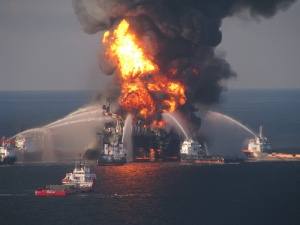Today’s Flickr photo:
If you read one thing today…
 Dave Barry’s annual year in review is out. How did 2010 measure up? It wasn’t pretty. From the oil gusher in the Gulf of Mexico to Toyota’s runaway cars, 2010 was a rough year.
Dave Barry’s annual year in review is out. How did 2010 measure up? It wasn’t pretty. From the oil gusher in the Gulf of Mexico to Toyota’s runaway cars, 2010 was a rough year.
On the BP oil spill:
The perfect symbol for the awfulness of 2010 was the BP oil spill, which oozed up from the depths and spread, totally out of control, like some kind of hideous uncontrollable metaphor. The scariest thing about the spill was, nobody in charge seemed to know what to do about it. Time and again, top political leaders personally flew down to the Gulf of Mexico to look at the situation first-hand and hold press availabilities. And yet somehow, despite these efforts, the oil continued to leak. This forced us to face the disturbing truth that even top policy thinkers with postgraduate degrees from Harvard University — Harvard University! — could not stop it…
…the Deepwater Horizon oil spill officially becomes, according to the news media, the worst thing that has ever happened, with environmental experts reporting that tar balls have been sighted on the surface of the moon. Just when all appears to be lost, BP announces that it has stopped the leak, using a 75-ton cap and what a company spokesperson describes as “a truly heroic manatee named Wendell.” Although oil is no longer leaking, much damage has been done, so this important story remains the focus of the nation’s attention for nearly 45 minutes, after which the nation’s attention shifts to Lindsay Lohan.





















